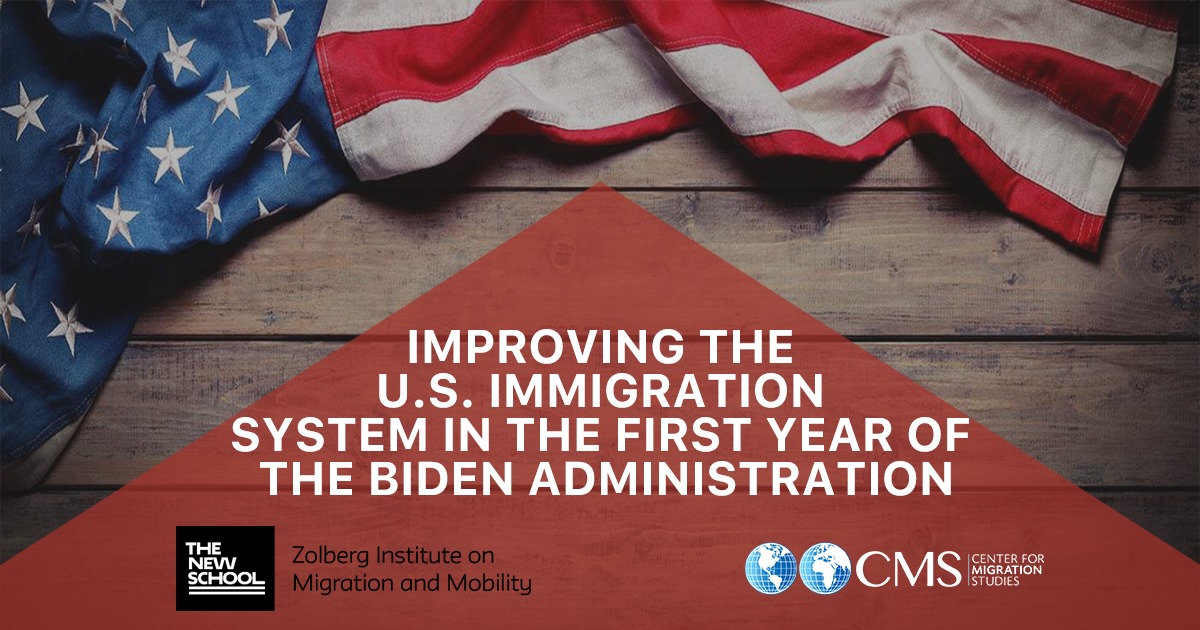
Zolberg Institute Issues New Report On Improving the U.S. Immigration System
During the last four years, the United States has instituted federal immigration policies that have denied entry to millions of non-citizens and threatened the rights of immigrants already here. These policies have caused backlogs, processing delays, and fee increases that have made visas and immigration relief unobtainable to many while saddling U.S. businesses with new bureaucratic requirements that diminished their productivity, competitiveness, and ability to create jobs. With the recent election of Joe Biden for president, there’s an opportunity to not only reverse many of these policies but reconceive the way the immigration process is structured. The Zolberg Institute on Migration and Mobility, in partnership with the Center for Migration Studies of New York (CMS), produced a new report to recommend to the incoming presidential administration immigration reforms that would reverse many of the ill-advised policies of the last four years and improve a system that has been in need of change for much longer.
The report, “Improving the U.S. Immigration System in the First Year of the Biden Administration,” focuses on 12 key areas — refugee policy; asylum; travel bans; legal immigration; Deferred Action for Childhood Arrivals (DACA); detention; border enforcement and accountability; interior enforcement; criminal prosecutions; legal access and representation, adjudication backlogs; COVID-19-related policies; and segregation of responsibilities within the Department of Homeland Security. Within these key areas are nearly 40 proposals for action that affirm the importance of immigration to U.S. families, U.S. businesses, and the future well-being of the nation. “We picked topics we thought were doable in a year and would have a significant impact,” says Alex Aleinikoff, university professor and director of the Zolberg Institute.
The recommendations focus on work the Biden administration, rather than Congress, could accomplish. “We directed this at actions that could be taken administratively because so much of what changed in the last four years has been by administrative fiat — executive orders, regulations, policy memoranda. Congress passed no major piece of immigration legislation,” says Aleinikoff. “Many of the recommendations would be more secure if put into legislation, but in the short term the best strategy is to take administrative action. In no other area of policy has the pursuit of Trump administration goals been more relentless than it’s been on immigration. The harms that have been suffered by immigrants, American citizens, their families have been devastating.”
Included among the reports many critical recommendations are: revoking the travel bans; permitting new registrations and consider updating the class of DACA-eligible persons; withdrawing regulations denying asylum to persons who transit through a third country before arriving in the United States or who apply for asylum at the border between ports of entry; limiting the role of local and state authorities in immigration enforcement; and changing the culture of the U.S. Customs and Border Protection department.
The genesis of this report was a conversation nearly a year ago between Aleinikoff and Donald M. Kerwin, Jr., executive director of CMS; both recognized that the advent of a new presidential administration would provide an opportunity to improve the system through innovative recommendations. “Long before we knew what the outcome of this election would be, Don and I had a conversation and discussed that if there were to be a new administration, it would have a huge amount to do in this area, so why don’t we pull together a group knowledgeable people to develop some ideas,” says Aleinikoff. “CMS is a well-respected think tank in New York City devoted to the study of migration, and Don has worked in this field for a long time, so it was a natural fit for us to work together on this project.”
Given the large number of issues that could have been covered in the report, Aleinikoff and Kerwin consulted with a group of experts to hone its focus. “We assembled a group of experts — academics, advocates, and policymakers — and developed an extensive list of critical issues. Everyone presented the issues they thought were the most important; then we picked the most important of these very important topics,” says Aleinikoff. “Participants developed short papers on particular topics that were circulated to the whole group. From this we came up with a list of recommendations that the group vetted. It was like a wiki in a way, with Don and me combining the best thinking and input of all the participants.”
He continues, “I think most Americans know that the Trump administration took a very hard line on immigration. There will be a period when Biden really could get a lot done, and most people would agree that we need to rebalance this because it’s gone so far in one direction in the past few years.”